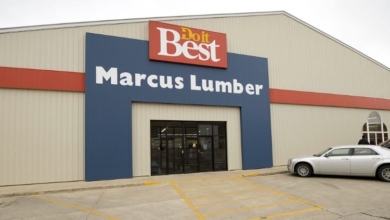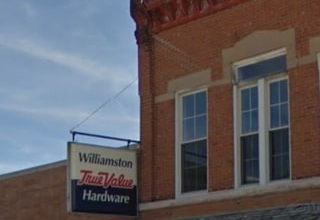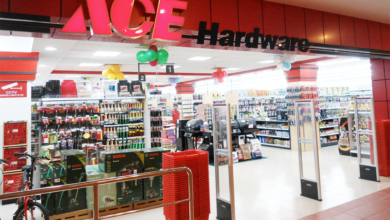PNC and True Value Urged to Settle Dispute to Avoid Complications in Do It Best Sale
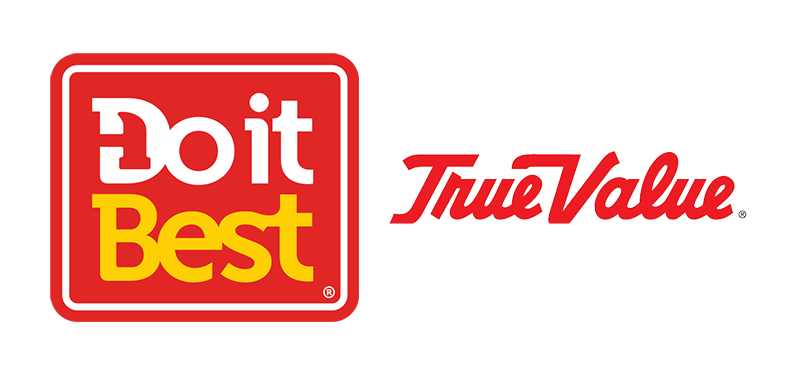
The potential sale of True Value to Do it Best may have hit a speedbump. The judge overseeing the case urged True Value, Do it Best and True Value’s creditors, including PNC Bank, to resolve differences and avoid a costly, time-consuming legal battle.
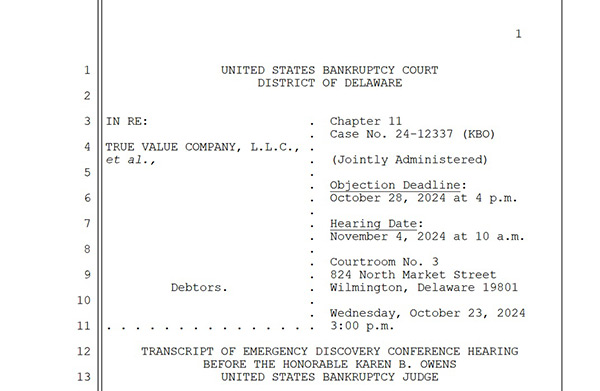
On Wednesday, October 23, Judge Karen Owens of the U.S. Bankruptcy Court, District of Delaware conducted an emergency discovery conference call with representatives from True Value, Do it Best and PNC Bank.
PNC Bank, a key lender in True Value’s bankruptcy case, has joined forces with other financial institutions to oppose the use of their cash collateral in facilitating the planned sale to Do it Best.
Recent filings reveal that PNC Bank, alongside other lenders, contend that the proposed sale could lead to significant financial setbacks. They argue that the deal undervalues their secured interests, and these creditors want the court to examine liquidation as a potentially more favorable alternative
According to court documents, the core of PNC’s objection is that the sale, which involves $153 million plus additional assumed liabilities, would result in substantial losses for the lenders, who estimate a loss of about $100 million after expenses.
Wrapping up the emergency conference, Judge Owens underscored that True Value is legally bound to maintain adequate safeguards for its lenders, irrespective of whether the sale might appear to be a better option than liquidation. Judge Owens cited Section 361 of the U.S. Bankruptcy Code, which outlines the requirements for “adequate protection”—a critical measure to ensure creditor interests are preserved during bankruptcy.
The concept of adequate protection under bankruptcy law exists to safeguard creditors’ rights, ensuring that any use of their collateral during the debtor’s bankruptcy proceedings does not diminish its overall value.
Addressing representatives from True Value, Do it Best and PNC Bank, Judge Owens emphasized that the protection of creditors is paramount, and simply arguing that the sale is better than liquidation isn’t sufficient. The judge encouraged all parties to engage in settlement discussions and noted that continuing disputes over this issue could lead to unfavorable outcomes for True Value, potentially delaying or complicating the sale process.
In addition to the judge urging parties involved to resolve differences, here are three main takeaways from the conference call with Judge Owens related to True Value’s bankruptcy and potential sale to Do it Best.
Relevance of Cash Collateral Motion and Sale to Do It Best: The central issue revolves around the use of cash collateral to facilitate the sale of assets to Do it Best Corporation. PNC Bank’s representative emphasized the need for clarity on how the cash collateral would be used and the terms of the sale agreement, particularly concerning the requirement for the debtors to operate their business in the “ordinary course.” This point is critical for True Value hardware retailers, because it affects the operational stability of their supplier and could impact ongoing supply agreements during the transitional period leading up to the sale.
Concerns Over Adequate Protection and Valuation: The court highlighted the importance of adequate protection for lenders, clarifying that the argument of whether the sale process is superior to a liquidation is not sufficient for determining adequate protection under legal standards. This affects hardware retailers as it underscores the risk associated with the sale not proceeding as planned, potentially jeopardizing their supply chain if the company defaults or liquidation becomes a more viable option. The court’s call for increased settlement discussions suggests an urgency to resolve these disputes to prevent such disruptions.
Objections to Discovery Requests Against Do it Best: The court ultimately decided to quash a subpoena against Do it Best, indicating a reluctance to involve a prospective buyer in extensive discovery processes. For hardware retailers, this signifies that Do it Best remains a protected buyer in this transaction, likely allowing for a smoother acquisition process without potential delays or complications from legal disputes. This decision reinforces Do it Best’s position and suggests the court’s intent to expedite the sale process for the benefit of all parties, including the hardware retailers relying on a stable distributor.







